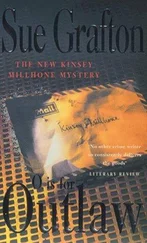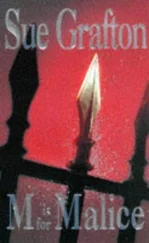Inside, the lobby was painted in bright primary colors. Maybe the elderly, like babies, were thought to benefit from the stimulation of strong hues. In the far corner, someone had taken a fake Christmas tree from its box and had gone so far as to stick the aluminum “branches” in the requisite holes. The conformation of branches looked about as realistic as recently transplanted hair plugs. So far, there were no ornaments and no tree lights. With so little late-afternoon sunlight penetrating the windowpanes, the overall effect was cheerless. Linked chairs of chrome, with bright yellow plastic seats, lined the room on two sides. Of necessity, lamps were turned on, but bulbs were the same paltry wattage used in cheap motels.
The receptionist was concealed behind an opaque sliding window, of the sort that greets you in a doctor’s office. An upright cardboard rack held brochures that made Rolling Hills Senior Retreat look like a “golden years” resort. In a montage of photographs, handsome, energetic-looking oldsters sat on a garden patio engaged in happy group-chat while playing a game of cards. Another image showed the cafeteria, where two ambulatory couples enjoyed a gourmet repast. In reality, the place had stimulated my hopes for an early and sudden death.
On the way over, I’d stopped at a market, where I’d stood for some time staring at the magazine rack. What kind of reading would amuse a cranky old man? I bought Model Railroading Magazine, a Playboy, and a book of crossword puzzles. Also, a giant-sized candy bar, in case he had a sweet tooth and hankered for one.
I hadn’t been in the lobby long, but since no one had opened the receptionist’s window, I tapped on the partition. The window slid back three inches and a woman in her fifties peered out. “Oh, sorry. I didn’t realize anyone was out there. Can I help you?”
“I’d like to see a patient, Gus Vronsky. He was admitted earlier today.”
She consulted her Rolodex and then made a phone call, keeping her palm close to the mouthpiece so I couldn’t read her lips. After she hung up, she said, “Have a seat. Someone will be out shortly.”
I sat down in a chair that allowed me a view of a corridor with administrative offices opening off each side. At the end, where a second corridor crossed the first, a nurse’s station diverted foot traffic like water flowing around a rock in the middle of a stream. I was guessing hospital rooms were located down the two peripheral halls. Living quarters for the active, healthy residents must be somewhere else. I knew the cafeteria was close because the smell of food was strong. I closed my eyes and sorted the meal into its component parts: meat (perhaps pork), carrots, turnips, and something else-probably yesterday’s salmon. I pictured a row of heat lamps beaming down on ten-by-thirteen stainless-steel food pans: one filled to the brim with chicken parts in milk gravy, another filled with glazed sweet potatoes, a third with mashed potatoes stiff and slightly dried around the edges. By comparison, how bad could it be to eat a Quarter Pounder with Cheese? Facing this muck at the end of life, why deny myself now?
In due course, a middle-aged volunteer in a pink cotton smock came and fetched me from the reception area. As she led me down the hallway, she didn’t say a word, but she did so in a very pleasant manner.
Gus was in a semiprivate room, sitting upright in the bed closest to the window. The only view was of the underside of ivy vines, dense rows of white roots that looked like the legs of millipedes. His arm was in a sling and the bruises from his fall appeared from the various gaping holes in his gown. His Medicare coverage didn’t provide private-duty nursing, a phone, or a television set.
His roommate’s bed was surrounded by a curtain on a track, pulled in a half circle that delivered him from sight. In the quiet, I could hear him breathing heavily, a cross between a rasp and a sigh that had me counting his inhalations in case he stopped and it was up to me to perform CPR.
I tiptoed to Gus’s bedside and found myself using my public library voice. “Hello, Mr. Vronsky. I’m Kinsey Millhone, your next-door neighbor.”
“I know who you are! I didn’t fall on my head.” Gus spoke in his normal tone, which came across as a shout. I glanced uneasily toward his roommate’s bed, wondering if the poor guy would be jarred out of his sleep.
I placed the items I’d bought on the rolling table beside Gus’s bed, hoping to appease his ill temper. “I brought you a candy bar and some magazines. How’re you doing?”
“What’s it look like? I hurt.”
“I can just imagine,” I murmured.
“Quit that whispering and talk like a normal human being. If you don’t raise your voice, I can’t hear a word.”
“Sorry.”
“Sorry doesn’t help. Before you ask another stupid question, I’m sitting up like this because if I lie on my back the pain is worse. Right now, the throbbing’s excruciating and it makes my whole body feel like hell. Look at this bruise from all the blood they’ve drawn. Must have been a quart and a half in four big tubes. The lab report says I’m anemic, but I didn’t have a problem until they started in.”
I kept my expression sympathetic, but I was fresh out of consolation.
Gus snorted with disgust. “One day in this bed and my backside is raw. I’ll be covered with sores if I’m here one more day.”
“You ought to mention it to your doctor or one of the nurses.”
“What doctor? What nurses? No one’s been in for the past two hours. Anyway, that doctor’s an idiot. He has no idea what he’s talking about. What did he say about my release? He better sign it soon or I’m walking out. I may be sick, but I’m not a prisoner-unless getting old is a crime, which is how it’s regarded in this country.”
“I haven’t talked to the floor nurse, but Henry will be here in a bit and he can ask. I did call your niece in New York to let her know what was going on.”
“Melanie? She’s useless, too busy and self-absorbed to worry about the likes of me.”
“I didn’t actually talk to her. I left a message on her machine and I’m hoping to hear back.”
“She’s no help. She hasn’t come to visit me for years. I told her I’m taking her out of my will. You know why I haven’t done it? Because it costs too much. Why should I pay a lawyer hundreds of dollars to make sure she doesn’t get a cent. What’s the point? I’ve got life insurance, too, but I hate dealing with my agent because he’s always trying to talk me into something new. If I take her name out as beneficiary, I have to figure out who to put in. I don’t have anyone else and I won’t leave a thing to charity. Why should I do that? I worked hard for my money. I say let other people do the same.”
“Well, there’s that,” I said, for lack of anything better.
Gus looked at the semicircle of curtain. “What’s the matter with him? He better quit that gasping. It’s getting on my nerves.”
“I think he’s asleep.”
“Well, it’s damned inconsiderate.”
“If you want, I can hold a pillow over his face,” I said. “Just kidding,” I added when he didn’t laugh. I took a peek at my watch. I’d been with him the better part of four minutes. “Mr. Vronsky, can I get you some ice before I have to take off?”
“No, just get on with you. To hell with it. You think I complain too much, but you don’t know the half of it. You’ve never been old.”
“Great. Okay, well, I’ll see you later.”
I made my escape, unwilling to spend another minute in his company. I had no doubt his testiness was a result of his misery and pain, but I wasn’t required to stand in the line of fire. I retrieved my car from the parking lot, feeling as irritable and out of sorts as he.
Читать дальше












